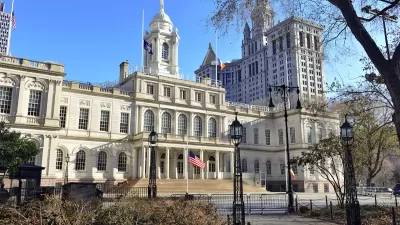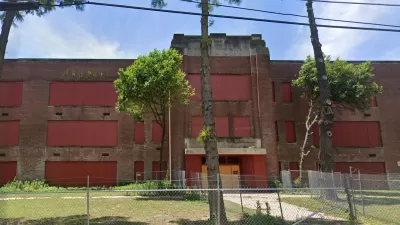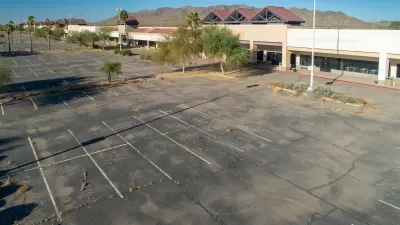The Angus Shops development is a model of urban adaptive reuse, but the residents who moved in the the initial development don't want any more housing added to the neighborhood.
The area where Angus Shops now sits was once an abandoned train works in eastern Montreal. Activist Christian Yaccarini led a plan to redevelop it. "The idea was to repurpose many of the hulking industrial buildings on the site – known as the Angus Shops – and create airy, affordable work and office spaces that would be attractive to new-technology companies, professionals, service providers and other small and medium-sized businesses," Bertrand Marotte writes for The Globe and Mail.
By almost any measure that plan was a success. The site is now home to more than 60 firms in a bustling LEED certified building. Now Mr. Yaccarini is ready for phase two, but some in the neighborhood are against it. "The fears voiced by homeowners in the existing townhouses and condos located across from the public park or just up the street from the new project, run the gamut from falling property values; a dearth of street parking and dangerous rise in vehicular traffic because of the population influx; excessive noise levels; overcrowding and overuse of the modestly-sized park; social tensions; and building heights that will block views of Mount Royal to the west," Marotte reports.
These neighbors, many of whom benefited directly from the development feel that what the neighborhood has now is enough. "'To the people who said, 'We moved to Angus because it represented the suburb in the city,' we replied by saying, 'Sorry, you made a mistake,'" Yaccarini tells Marotte.
FULL STORY: Residents of Montreal's Angus Shops resistant to more change

Study: Maui’s Plan to Convert Vacation Rentals to Long-Term Housing Could Cause Nearly $1 Billion Economic Loss
The plan would reduce visitor accommodation by 25,% resulting in 1,900 jobs lost.

Alabama: Trump Terminates Settlements for Black Communities Harmed By Raw Sewage
Trump deemed the landmark civil rights agreement “illegal DEI and environmental justice policy.”

North Texas Transit Leaders Tout Benefits of TOD for Growing Region
At a summit focused on transit-oriented development, policymakers discussed how North Texas’ expanded light rail system can serve as a tool for economic growth.

How Community Science Connects People, Parks, and Biodiversity
Community science engages people of all backgrounds in documenting local biodiversity, strengthening connections to nature, and contributing to global efforts like the City Nature Challenge to build a more inclusive and resilient future.

Alabama: Trump Terminates Settlements for Black Communities Harmed By Raw Sewage
Trump deemed the landmark civil rights agreement “illegal DEI and environmental justice policy.”

Dear Tesla Driver: “It’s not You, It’s Him.”
Amidst a booming bumper sticker industry, one writer offers solace to those asking, “Does this car make me look fascist?”
Urban Design for Planners 1: Software Tools
This six-course series explores essential urban design concepts using open source software and equips planners with the tools they need to participate fully in the urban design process.
Planning for Universal Design
Learn the tools for implementing Universal Design in planning regulations.
City of Santa Clarita
Ascent Environmental
Institute for Housing and Urban Development Studies (IHS)
City of Grandview
Harvard GSD Executive Education
Toledo-Lucas County Plan Commissions
Salt Lake City
NYU Wagner Graduate School of Public Service




























